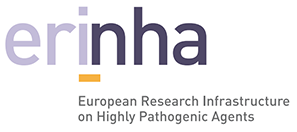IFB provides IFB users (biologists, biomedical and bioinformaticians) with a training offer that takes into account the wide diversity of needs and expectations:
– diversity of computer skills (no command line experience, occasional use, familiar, program a little)
– specific courses on new technologies or on biological applications (e.g. NGS, long reads, metabolomics…)
– generic methodological skills (statistics, good programming practices, etc.)
– advanced use of IT technologies (HPC, virtualisation, cloud computing, interoperability, FAIR practices, integrative bioinformatics…)
– good training practices (pedagogical approaches, reuse of materials, etc.)
Visit website





